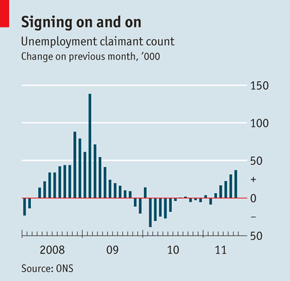The American Recovery and Reinvestment Act (ARRA), better known as the "stimulus package", was signed into law in February 2009. In the wake of this large (and it was large, though not massive) spending package, a wide variety of people came out to say "it didn't work" ...
These ranged from free market Milton Friedman swooning economists who cringed at the idea of Keynesian economic theory being implemented after their own policies failed the country abysmally to CEOs of large companies that gained financially through the stimulus, to state governors who claimed it was wasteful while accepting $28.5B in money for their own states (I'm looking at you Rick "The Idiot" Perry).
Now Perry I can understand. He's running for president against President Obama so facts don't matter to him. I mean, he closed 97% of his state government's budget deficit using stimulus money and he took a great deal of credit for jobs created while he was spending that $28.5B in stimulus funding in his state.
The CEO at least waited a year before making his pronouncement. Of course, he did what a CEO was supposed to do - review the effects of the stimulus on his own bottom line. Interesting that within weeks of this pronouncement, Intel was given a tax exempt bond issuance to build a new semi-conductor factory and upgrade adjacent facilities in Oregon. That ol' CEO has been silent since then on the success of the stimulus. Convenient for him and his shareholders.
But the economists? Well, the economists are slaves to their ideology - claiming the stimulus didn't work just a few months after it was enacted. But they're careful. These sneaky economists were very, very careful ... they pointed to the lack of increase in personal consumer spending as a sign the stimulus didn't work ... and this from data dating only through June 2009. This is convenient for them, because stimulus funding didn't begin allocation until the 3rd fiscal quarter in 2009 (April 1-June 30) so they were looking at the effect of $36B in stimulus on a single indicator to demonstrate for their fellow free market rag, The Wall Street Journal, that Keynesian economic theory is a failure. What a load of bullshit.
But more economists spoke out, right? That's right, in a survey of 68 private sector economists, 50 (73%) said the stimulus didn't increase hiring for their companies, but 39 (57%) said that demand for their services was rising - they just apparently didn't think the stimulus was causing that demand. This was 68 economists employed by businesses. How many economists are employed by businesses? Where did they work? What was their motivation? As someone who does survey research as part of my job, 68 is a very low sample size to draw such an enormous conclusion. Of course, if I could get that much press by surveying 68 conflicted individuals, I'd be a fool not to. I'm sure the National Association of Business Economists was well compensated for their findings.
But getting away from the claims of ideological zealots, politicians, and CEOs looking for a handout, what do the data actually tell us? The stimulus package has largely run out of money. Approximately $670B of an expected $787B has been paid out. So 85% of the money has been spent. A fair amount of the remaineder may end up being unallocated, so we've basically seen the bulk of the money having been spent over the past 2 years. What did it get us?
Well, one indicator is the job growth rate, since a big part of the stimulus was to get the labor market moving again. Take a look at the chart below from The Economist:
See that big spike? That's February 2009 - the month the stimulus was signed into law. We see an immediate and steep decline in jobless claims, which once the money started being received around April 2009, declined steadily until joblessness plateaued around the middle of 2010, presumably after many of the jobs created by the stimulus had been filled. But stimulus money began to run out for many of the projects over the past few months and look at that ... jobless claims are climbing again in mid-2011. But remember, the stimulus didn't work.
Now lets look at the effect on GDP.
So by the 2nd quarter 2009 (this isn't fiscal quarters) we see a big bump, coinciding again, with the stimulus package. Yes, GDP is a very gross measure, but there wasn't a whole lot going in with the economy at this point so how else do we explain this rapid movement from -4% retraction to +4% growth in just 2 quarters? It's tough to explain otherwise. Sure, the Fed was doing its own tweaking of the economy, but it would be tough to imagine that infusing the economy with an additional ~$150B in spending each quarter wasn't helping anything. To claim that the stimulus didn't work.
So what's been happening as the stimulus has wound down? No big surprise. Growth is anemic. The original 1.9% 1st quarter GDP in 2011 (seen in the 2nd figure above) was revised down to just 0.4% "growth" ... and the 2nd quarter wasn't much better at 1.3%. The slowest growth since the stimulus package was enacted 2 years ago. Some economists (those with a mind of their own?) now think we're headed to a double dip recession as the stimulus funding runs out and austerity cuts are enacted at the wrong time.
Notice nobody's come back out and admitted they were wrong? Not a big surprise, really. Ideologues, politicians, and capitalists can't (or won't) change their spots.


No comments:
Post a Comment